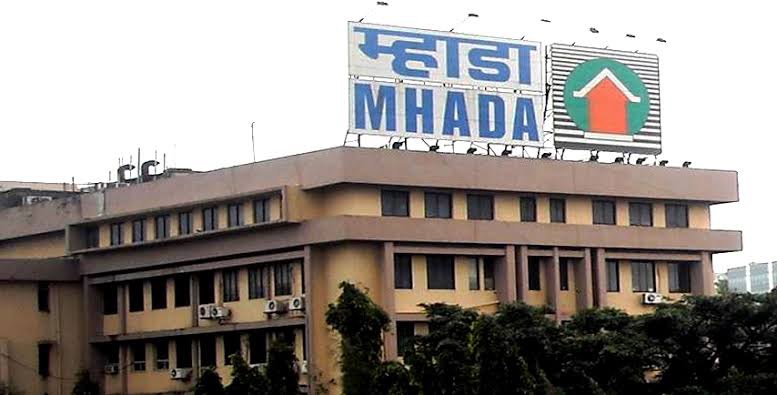The Maharashtra Housing and Area Development Authority (MHADA) convened a crucial workshop today to set the groundwork for the ambitious Mumbai Metropolitan Region (MMR) Growth Hub Project, a key initiative under Niti Aayog’s vision to boost Maharashtra’s economic growth. The workshop brought together government officials, private developers, construction professionals, and stakeholders to collaborate on solutions to address Mumbai’s housing crisis, stimulate redevelopment, and create employment opportunities.
The workshop, led by Sanjeev Jaiswal, IAS, Vice President & CEO of MHADA, focused on strategies to accelerate housing delivery, urban redevelopment, and infrastructure development within MMR. This initiative aims to propel the region’s GDP from $140 billion in 2023 to $300 billion by 2030, while delivering 3 million affordable homes and addressing the severe housing shortages in the region.
Ambitious Affordable Housing Targets
Jaiswal outlined MHADA’s ambitious goals for 2030, which include delivering 8 lakh affordable housing units across Mumbai and surrounding areas. Of these, 2.2 million homes will be created through slum rehabilitation (SRA), while 800,000 homes will come from MHADA’s own affordable housing schemes in collaboration with CIDCO. He stressed that private developers’ involvement would be crucial to achieving these targets, particularly in a region with significant untapped potential for housing development.
A key focus of the MMR Growth Hub Project is affordable housing. Jaiswal emphasized that MHADA is pivoting toward a diverse range of housing solutions to cater to the varying needs of MMR’s population, including rental housing, student accommodations, working women’s hostels, studio apartments, industrial housing, and old-age homes. These solutions are aimed at providing affordable living options for a wide spectrum of income groups.
To make housing more accessible, Jaiswal highlighted the need to revisit building permissions, premium charges, and taxes like GST, which he believes could significantly reduce the overall cost of housing. He also stressed that efficient collaboration between government agencies and private developers will be vital for the smooth and timely execution of redevelopment projects.
Fostering Collaboration and Addressing Challenges
The workshop also focused on the challenges faced by stakeholders in the housing and redevelopment sector. Milind Shambharkar, IAS, Chief Officer of the Mumbai Building Repairs & Reconstruction Board, addressed regulatory hurdles that are hindering redevelopment efforts. He pointed to the need for policy reforms to expedite stalled projects, particularly in relation to the 33(7) and 33(9) provisions for redevelopment. He also proposed amendments that would allow faster approvals and smoother implementation of projects.
Shambharkar stressed the importance of 91(A), which mandates the demolition of unsafe buildings, to protect public safety. Additionally, he proposed the creation of an online portal to streamline the approval process for redevelopment proposals, improve transparency, and efficiently manage citizen grievances related to housing projects.
Sustainable Urban Development and Cluster Redevelopment
Milind Borikar, IAS, Chief Officer of the Mumbai Board, MHADA, further elaborated on the housing goals set for 2030, particularly the target of delivering 8 lakh units. He emphasized that redevelopment would play a central role in achieving these targets, with the development of 2,000 hectares of land earmarked for cluster-based redevelopment. This approach will not only ensure sustainable urban planning but also facilitate necessary infrastructure upgrades, such as roads, utilities, and public amenities, to support the growing population in MMR.
Borikar stressed that government collaboration to reduce project costs would be instrumental in making housing more affordable for middle- and low-income families. He also pointed to the significant potential of the MMR region to accommodate more housing units, given the underutilized areas and the need for efficient land use.
Innovative Housing Models for MMR’s Evolving Needs
In his concluding remarks, Anil Wankhede, Deputy CEO of MHADA, spoke about the importance of innovative housing models to meet the diverse needs of MMR’s population. He outlined plans for developing rental housing, student hostels, shared units, and industrial housing, which align with the region’s evolving urban demands. He also reiterated the pivotal role of cluster redevelopment in optimizing land use and creating integrated urban spaces, which can accommodate both residential and commercial needs.
Wankhede also emphasized that collaboration with private developers will be key in addressing challenges like stalled projects and surplus tenements, ensuring that redevelopment efforts are not delayed and the full potential of the MMR region is realized.
A Call for Collaboration and Commitment
The workshop concluded with a strong call for collaboration among government agencies, private developers, and citizens to meet the ambitious targets set for the MMR Growth Hub Project. MHADA reaffirmed its commitment to delivering affordable housing, redeveloping urban spaces, and contributing to Maharashtra’s broader economic and social transformation by 2030.
As the workshop demonstrated, the MMR Growth Hub Project represents a major step towards not only addressing Mumbai’s housing crisis but also driving the region’s economic growth and urban development. The success of this initiative will hinge on the active participation of all stakeholders and the creation of an enabling environment for faster and more affordable housing development.
Also Read: MHADA-lottery-page-3









